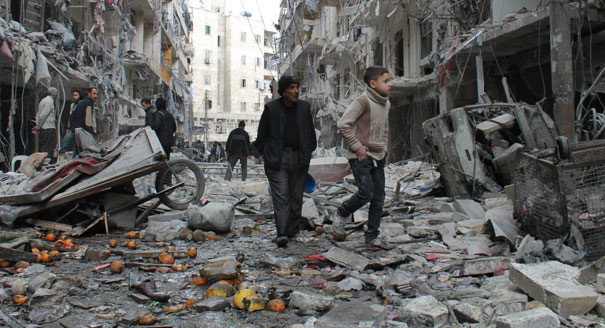Source: Stockholm University
“It’s unfortunately a very gloomy scenario ahead,” said Carnegie’s Lina Khatib during Stockholm University’s open talk on Syria. “In the very beginning of the crisis, when it wasn’t a conflict yet—an armed conflict—it was an uprising by people against an oppressive regime. There could have been a way for the international community to exert diplomatic pressure on the Bashar al-Assad regime—to force the regime to at least compromise.”
However, the international community, in Khatib’s opinion, “has acted in a very selfish manner regarding the Syrian conflict and not looking far ahead about how actually inaction can backfire and lead to, for example, the jihadist issue that we are...concerned about in Europe and the economic crisis that is, you know, catastrophic, and the whole generation of Syrians that is growing up without education...and what this means for the Middle East as a whole.”
Combined with the international community’s “lack of foresight,” neither diplomacy nor military intervention will actually work, expressed Khatib. “We’ve now reached the point of no return. There’s no point in ousting Assad militarily when we have a country that is approaching a failed state scenario.”





